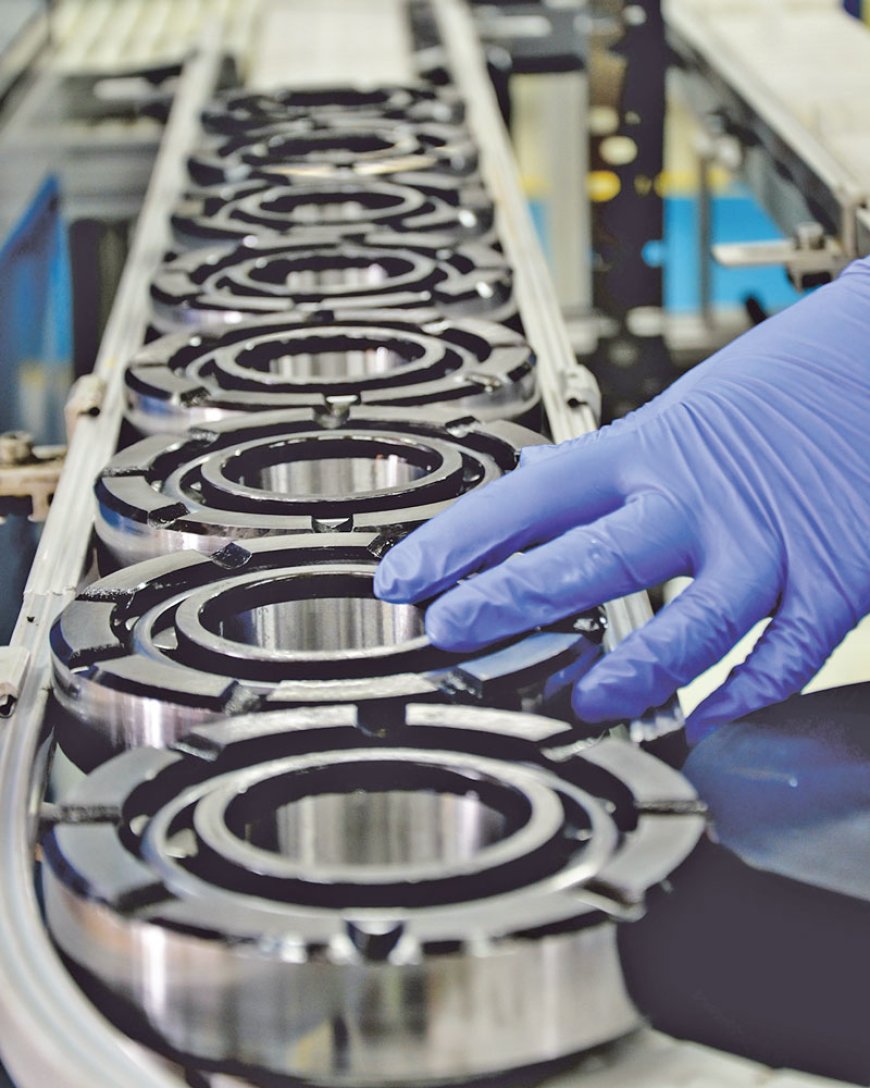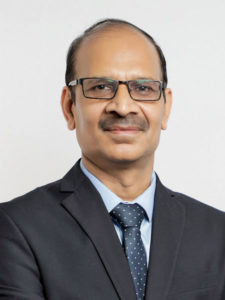The market is also moving towards maintenance-free bearings, ‘Made in India’ products and intelligent feedback systems
Currently, India is the third-largest CE market after China and USA, and we are on our way to becoming the second largest in the world by 2030. As the economy further opens, the market for construction equipment will follow an upward trend in the medium to long term.


– Shailesh Sharma
Director of Manufacturing, SKF India and South East Asia
What are your views on making India a global CE manufacturing hub which will indirectly support the component manufacturers?
Currently, India is the third-largest CE market after China and USA, and we are on our way to becoming the second largest in the world by 2030. As the economy further opens, the market for construction equipment will follow an upward trend in the medium to long term. The Indian government’s continued focus on infrastructure investment and enabling policies will help in driving rapid infrastructure development across all avenues including airports, ports, and highways to smart cities. Additionally, the lower manufacturing costs and availability of skilled labor, have created a huge opportunity for global equipment manufacturers to set up their base in India. Furthermore, strong relations between India and the EU, ASEAN, and the Americas are a complementing factor to make India an export hub for construction equipment.
Also, given that India has promised to cut its emissions to net zero by 2070, several industries including the construction equipment manufacturing companies are focusing on more environment-friendly and cleantech solutions. The market is also moving towards maintenance-free bearings, “Made in India products”, and intelligent feedback systems.
Give us details about your manufacturing facilities in India.
In India, we have six manufacturing facilities located in Pune, Bangalore, and Haridwar. We also have 12 sales offices across the country and a supplier network of over 500 distributors.
Over the years, we have evolved our product offerings with changing market and customer preferences. Today, we offer innovative solutions to reduce friction, achieve energy efficiency, and increase equipment longevity and reliability. Our manufacturing units cater to the growing automotive and industrial sectors in India. Our manufacturing facilities are integrated with state-of-the-art testing centers for product validation, conformation, and a plug-and-play REP center for facilitating condition monitoring. We are committed to helping our customers save energy, reduce their carbon footprint, and achieve 100% decarbonization. With the help of technology and a century-old engineering experience, we are making our products lighter, more efficient, longer lasting, and repairable, thus ensuring sustainable and clean growth.
Additionally, we are dedicated to achieving carbon neutrality in our own operations globally. By 2030, all our production facilities across the globe will have net zero greenhouse gas emissions.
How technologically advanced are your manufacturing facilities in India? Also, what are the safety features incorporated in these facilities?
Digitalization is becoming increasingly important in industry, and the number of devices connected to the Internet keeps growing. At SKF, technology and innovation act as drivers of our continued focus to create ingenious solutions for our customers and arriving at informed decisions to increase the efficiency of our existing processes. We are gradually transforming our facilities to aid the growth of a ‘Future Factory’, aided by a well-defined strategic roadmap to reach Manufacturing 4.0 by 2023-2024. Our approach involves an incremental transformation of the Supply Chain, Quality, Engineering, and People processes to achieve our goal of sustaining excellence across operations.
Given our focus on developing world-class manufacturing processes, we have successfully installed a Channel Monitoring System at our Pune factory for real-time equipment performance monitoring and a maintenance cockpit for real-time machine health monitoring. With access to real-time and remote monitoring, operators will be empowered to better predict and plan machine maintenance schedules, as well as develop long-term statistical evaluations of diagnostic data.
Further, with the Equipment to Machine (E2M) connectivity project, we focus on reducing scrap and man-machine intervention while improving built-in quality (BIQ). Soon, our plan is to scale this up to meet the needs of the entire factory.
What are your company’s initiatives in skilling and training?
At SKF, we have deployed a few key initiatives by understanding how to create value as a business and what capabilities are needed to get there. These initiatives are designed to nurture our employees’ potential, enhance engagement and productivity, and ensure overall business continuity.
For our shopfloor workers, we have our SME (subject matter expert) Development program in India. The objective is to focus on the continuous development of our core manufacturing processes like heat treatment, grinding, honing bearing assembly, etc. by building a pool of experts. The identified process specialists undergo a structured assessment and development process and are further required to train others to get certified. Another example on upskilling is through Kushal 4.0 program, which trains our shop floor employees and makes them future-ready.
Our leadership development framework in India enables upskilling of our high-potential employees and fast track them to leadership roles. For instance, Transformational Leadership Program (TLP), is a bespoke learning journey curated for chosen high potential leaders to elevate them to lead more complex roles
How do you make use of robotics in your facilities?
At SKF, our aim is to become truly data-driven and accelerate digitalization initiatives. We’re focused on using new data/IT capabilities, automating many steps, and leveraging accurate data to drive decision-making and build new capabilities that will deliver even higher levels of production and efficiency. Within our manufacturing footprint, we are planning to utilize sensor technology, robotics, and SCADA system along with the control system of machines being upgraded to the latest PLC with advanced features. Additionally, we encourage paperless Data Management for production purposes.
Tell us on your export market and important initiatives to cater to the requirement of the international market?
At SKF, everything starts with a customer requirement. We have been focused on catering to the needs of the local market since the time of our inception. Over more recent years, SKF has evolved from a product-based bearing and services supplier to a data-driven systems solutions provider, with a focus on addressing the specific needs of customers rather than offering one-size-fits-all type solutions.
In the Industrial segment, we have a wide product portfolio of bearings, seals, and lubrication systems, coupled with rotating equipment solutions and remanufacturing. We cater to over 40 industries globally, directly as well as indirectly, through a network of distributors. Particularly in Railways, we offer solutions for a wide range of wheelset designs for all kinds of railway rolling stock. This includes high-speed trains, diesel, and electric locomotives, diesel and electric multiple units, passenger coaches, freight cars, and mass transit vehicles like tram cars.
Hits: 2








